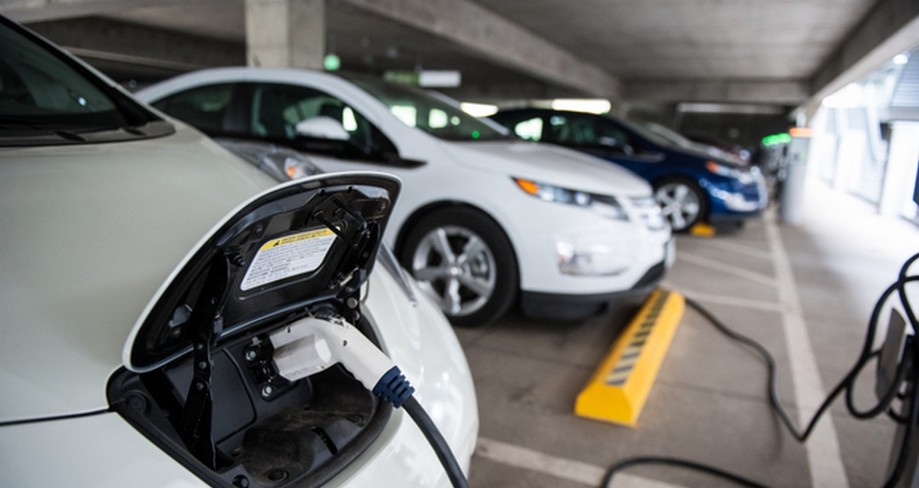Kategori : ELECTRICITY ENERGY NEWS, ENERGY AGENDA NEWS - Tarih : 01 June 2020
Registrations of battery electric vehicles (BEV) in Europe doubled during the first months of 2020, while overall passenger cars fell by 25.6% compared to the same period last year. Data by the European Alternative Fuels Observatory (EAFO) shows that electric cars still only accounted for 4% of total.
The EAFO, which collects data for all vehicle types and for infrastructure when it comes to alternative fuels (electric, hydrogen, LPG, LNG, CNG, biofuels), noticed that these accounted for 5.4% of total in 2019 and the amount of BEV registrations alone rose by more than 100% in the first quarter of 2020.
 The current coronacrisis played a role
The current coronacrisis played a role
In particular, due to the COVID outbreak and lockdown, overall European car sales in March dropped by 55% compared to last year. However, when we look at electric cars, they have seen a relatively lower drop than diesel or petrol cars. If anything, they reached an all time high during these months.
According to Floris Jousma, clean mobility specialist at the European Alternative Fuels Observatory, “most people that registered a new BEV in the first quarter had already ordered them before the pandemic.” Now that more models have become available, prices are dropping, and the range of the newer models has increased, more people are being convinced they could live with an electric car. Furthermore, more countries with big markets like Germany, France, UK and Italy, implemented more financially interesting incentives for consumers.
“Also, the effect of having more electric vehicles on the road affects people’s view and mindset,” Jousma adds. “Our research shows that when an acquaintance (like a friend, family member or even neighbor) buys an electric vehicle, people are more inclined to also open their mind to buying one as their next car.”
With a likely decline in public transportation due to social distancing, people might switch from trains and buses to cars especially for longer distances. At the same time, urban areas have a chance to become more and more emission-free by limiting access to pedestrians, bikers and forms of electric micro-mobility.
“When the increase of available recharging points is combined with financial incentives like a purchase subsidy to overcome the higher price tag of an electric vehicles, or other financial incentives that result in a lower Total Cost of Ownership (TCO) by reduced fuel costs, road tax, benefit in kind tax, and non-financial incentives like free parking, then people start buying electric,” Jousma says. “People want to travel hassle-free without adding too much time for charging on their trips. So there’s a threshold to overcome, which can be solved.”
As electric continues to represent a small percentage, the present moment may be ideal to boost the sector. But the change won’t come without controversies.
At the beginning of the pandemic, the car industry sent a letter to European Commission president Ursula von der Leyen, asking for liquidity to be made available and for climate targets to be delayed.
“There is no doubt the impact on our sector is unprecedented,” the European Automobile Manufacturers’ Association (ACEA) wrote together with others. And added: “This upsets the plans we had made to prepare ourselves for complying with existing and future EU laws and regulations within the applicable deadlines set in these regulations. We believe therefore that some adjustment would need to be made to the timing of these laws. Please be assured, however, that it is not our intention to question the laws as such nor the underlying objectives of road safety, climate change mitigation and protection of the environment.”
NGOs reacted by saying the car lobby was attacking CO2 targets on the back of COVID-19.
“For the moment, the biggest worry is to get people back to work in safe and healthy conditions. At the same time, the industry is worried that some of their most polluting cars (those that make most of profits) might not be sold this year,” says Lucien Mathieu, transport and e-mobility analyst at Transport & Environment, campaigning for cleaner transport in Europe. “Anyway, the short economic crisis should not be opposed to the climate targets.”
“Currently the EU is working on a massive investment programme and this kind of opportunity doesn’t happen every year. Crucially, the recovery needs to be green and this is also in the best interest of the industry because it will give the direction to have a future-proof decarbonised industry.”
A strong commitment from the automotive industry is necessary to make the transition. In fact, when car makers have to produce electric vehicles, a surge in sales is noticed. Thanks to this trend, 3.5 million electric cars are set to be produced in 2020 and 2021. On top of this, there is a plan for a dozen of European battery giga factories to be ready by 2023 or 2024.
According to Mathieu, “this means that supporting a recovery rooted in electrification is also a smart industrial strategy.”





